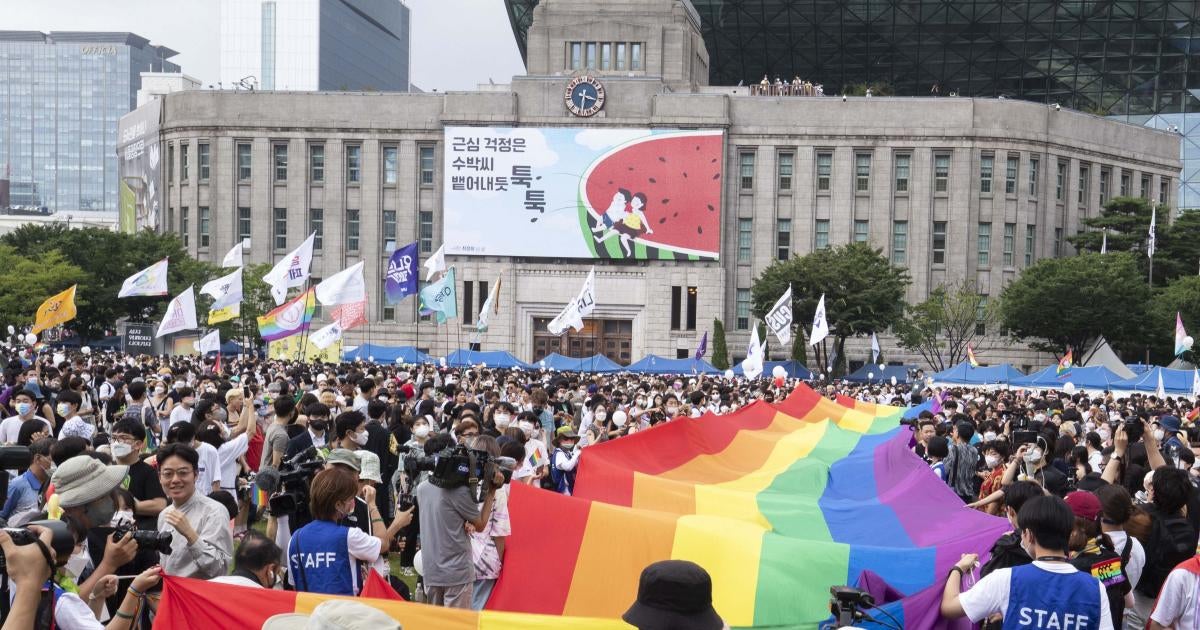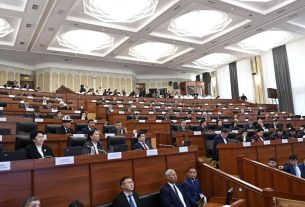(Jakarta) – South Korea’s president, Yoon Suk-yeol, has refocused the government on human rights issues in North Korea since taking office in May 2022, but has not addressed important domestic rights concerns, Human Rights Watch said today in its World Report 2023. His failure to tackle South Korea’s pervasive discrimination against women and marginalized groups has been critical.
“President Yoon Suk-yeol’s administration should adopt a more comprehensive human rights agenda domestically while promoting rights in the region and globally,” said Lina Yoon, senior Korea researcher at Human Rights Watch. “Failing to address human rights issues at home weakens South Korea’s credibility to raise human rights globally.”
In the 712-page World Report 2023, its 33rd edition, Human Rights Watch reviews human rights practices in close to 100 countries. In her introductory essay, acting Executive Director Tirana Hassan says that in a world in which power has shifted, it is no longer possible to rely on a small group of mostly Global North governments to defend human rights. The world’s mobilization around Russia’s war in Ukraine reminds us of the extraordinary potential when governments realize their human rights obligations on a global scale. The responsibility is on individual countries, big and small, to apply a human rights framework to their policies, and then work together to protect and promote human rights.
President Yoon filled the long-vacant position of special ambassador for North Korean human rights and pledged to establish the North Korean Human Rights Foundation, mandated by law, to fund further investigations and action on rights abuses. President Yoon also proposed meetings between Korean families separated by the Korean War and offered humanitarian aid to North Korea in the context of its Covid-19 outbreak. In November, South Korea co-sponsored the annual resolution at the UN General Assembly Third Committee, condemning North Korean human rights violations for the first time since 2019.
Domestically, the government continued to lag in addressing rampant discrimination against women and girls, migrants, foreigners, older people, people with disabilities, and lesbian, gay, bisexual, and transgender (LGBT) people. In early 2022, the National Assembly considered a draft anti-discrimination law introduced by the previous president but did not adopt it.
The Economist reported that South Korean women earn 38 percent less than their male counterparts, the largest gender pay gap of any Organization for Economic Co-operation and Development (OECD) member country.
Topics like feminism and sexism have become more divisive in South Korea in recent years. During his campaign for president, President Yoon made frequent appeals to anti-feminist male voters, blamed feminism for the decline in the birth rate, and pledged to abolish the Ministry of Gender Equality and Family, which he is currently trying to dismantle.
Key developments in South Korea’s LGBT rights movement included the election to parliament of Cha Hae-young, the first openly LGBT elected official. The Supreme Court of Korea overturned the military convictions against two gay soldiers who had been prosecuted for same-sex conduct under article 92-6 of the Military Criminal Act. Nevertheless, LGBT people in South Korea have continued to face hostility and discrimination. When approximately 13,000 members and supporters of the LGBT community assembled for Seoul’s first LGBT Pride festival in three years, they were outnumbered by 15,000 anti-LGBT protesters who assembled nearby.
With growing criticism of common workplace abuses, including bullying, harassment, and retaliations against organizing workers, the National Assembly debated a bill limiting employers from seeking damages for losses incurred during strikes. Despite continuing pressure from unions and civil society groups, the government has not ratified Convention No. 190 of the International Labour Organization, which promotes measures to end harassment and violence in the workplace.



